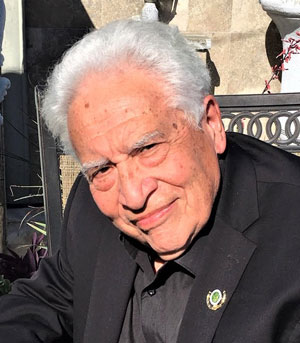Our Theatrical Mission
 As actors, writers, directors, producers and all of us who work in the theatrical world must have a theatrical conscience that tells us that it is our moral and ethical obligation as practitioners of this craft to depict and dramatize the human spirit and the soul.
As actors, writers, directors, producers and all of us who work in the theatrical world must have a theatrical conscience that tells us that it is our moral and ethical obligation as practitioners of this craft to depict and dramatize the human spirit and the soul.
We can use our capacity and abilities as artists to tell our stories in dramatic terms. The inspiration the actor and writer needs to create a character, to tell a story is right smack in front of us every day. Do we have eyes that can see and the tenacity, strength of conviction to hold a mirror up to this moment in life and reflect it to the audience?
As professional artists working in the theatrical arts, we are not just reporters, we are delivering the truth of the moment with a point of view – our message.
Herein lies our ‘theatrical mission.’ To have the ability to not only entertain but to depict and dramatize slices of life’s moments in people’s lives that are not always pleasant but controversial. This too is our mission.
When every thinking feeling actor, director writer and producer who works in the theatrical arts allow themselves to be solely inspired and motivated by what sells, by the current trends, we lose and destroy the integrity of our craft. The very fuel that enlightens, inspires and motivates us is our direct connection to the soul of the characters we dramatize, to the story we tell and the message we send.
When one reaches a certain age and has worn many hats in this craft as I have, one cannot help but form conclusions. Yet, I still believe the responsibility of the actor and those who function in this art to not be complacent, but to speak out and share one’s point of view.
Elia Kazan gave a speech to the Acting Company at Lincoln Center at its founding: “We are organizing a group of human beings to make art. Not to do business. We have not come together to sell art. We believe that the theater is not an escape from life, but part of the act of living! There is no greater preparation for a role an actor plays, a play or script a writer writes than the fuel they experience from life’s moments. To tell the truth. The soul of the actor is nourished by the truth. The truth shall be the actor’s guiding force.”
It is time to take a deep breath and go back to the roots and foundation of our art. Although we must celebrate our individualism, we must stand together in unison to fight for the integrity of the craft.
We must understand, in no uncertain terms, the meaning of the familiar and often used expression: “The play is the thing.” It’s not just a catchy phrase. It means “The play is the thing!”
It would do us all well if everyone involved in the production of a theatrical film, theater play or television drama to remind us of our true mission as dramatists. We have forgotten how powerful a mission our mission is and it’s also the audience is expecting from us. Nothing has really changed in the creative process. The craft has never changed, the business has.
When I hear industry professionals continuously say: “The business is different
now!” or ‘That was then, this is now.” I remind them that the craft of acting and the entire creative process is likened to the tail wind airline pilots refer to in flight. This tail wind
is omnipresent, and omni-powerful. Consider the craft and creative process to be the tail wind.
We all live and work in this business, which is the business of “reinventing the wheel.” We are inundated with techniques of how to “make it in show business,” as well as marketing ourselves. We have made acting a competitive sport. We call auditioning: “competitive auditioning,” when in fact, great art is born out of great inspiration.
I believe the actor, director and writer artists can still function in this the era of “big business” by embracing the best in themselves, as voiced by Constantin Stanislavsky: “We are here to celebrate the human condition and the human spirit.” •2020 Written exclusively for “The Soul of the American Actor.”
VICTOR PERILLO Writer, Producer, Lecturer. A former theatrical Agent worked more than twenty years as an AFTRA/SAG, AEA agent in New York, Chicago, and Los Angeles. He represented the late child actor Gary Coleman, star of “Diff’rent Strokes” and “The Gary Coleman Show,” and produced his movies for NBC. He worked with Gordon Phillips on studio projects at The Actors Studio including “Marathon 33” and “The Baby Elephant.” Currently, he is in pre-production on a major film he wrote, The Lambert Chronicles,” a drama based on the collection of notes, a personal diary and dossiers kept and collected by Major Warren Lambert, US Army, Dachau War Crime Trial Judge. Mr. Perillo continues to lecture at theater departments at colleges and universities across the United States and Canada. www.vcperillo.com

